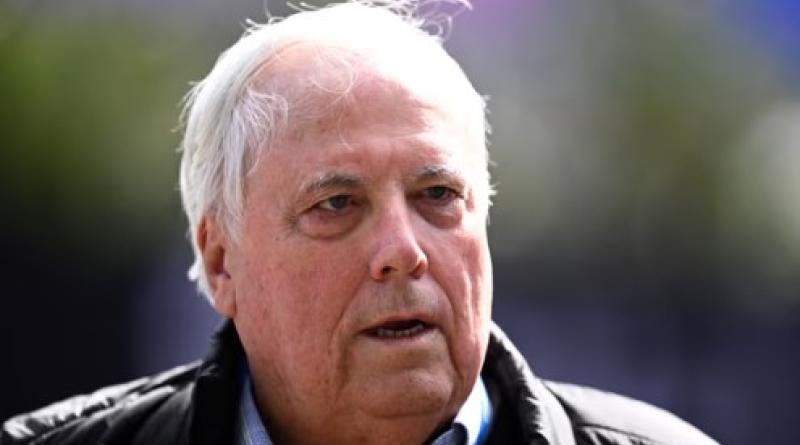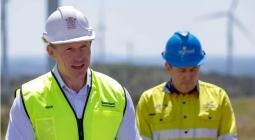Queensland rejects Clive Palmer’s bid to build ‘carbon neutral’ coal-fired power station

Environment department questions feasibility of Waratah Coal’s claims about the use of carbon offsets, credits, and capture and storage
Queensland authorities have blocked Clive Palmer’s plans to build a large coal-fired power station on an outback cattle property, citing climate impacts and rejecting his company’s claims it would be “carbon neutral”.
In its decision notice about the proposed 1.4GW power station proposal, the Queensland Department of Environment and Science said economic and employment impacts were outweighed by climate concerns, and that it was inconsistent with “the right to life”.
Palmer’s company, Waratah Coal, had argued it could use carbon credits, carbon offsets, carbon capture and storage technology and biomass to make the proposal “carbon neutral”.
The department questioned whether those claims were viable.
“The feasibility and timeframe for approval of CCS as a greenhouse gas abatement measure for this project cannot be determined; the feasibility of supplementing coal with biomass cannot be determined; and the feasibility of carbon offsets is not certain.”
In any case, the department said Waratah Coal had “not sought approval” for CCS or biomass burning to be used as a mitigation measure for the project.
The plan was to build a 1.4GW power station on a cattle property near the mining town of Alpha in the Galilee Basin.
Initially Waratah Coal lodged a development application for the $3.5bn plant with the Barcaldine regional council, rather than the Queensland government. In 2021 the state exercised “call in” power to assess the project.
The company has had approval since 2013 to build a 40m tonne coalmine 30km north of Alpha – population 335 – and 450km west of Rockhampton. It has taken no steps to begin mining.
The Department of Environment and Science said the coal power station, if approved, would be the among the 100 biggest carbon polluters in Australia and the second-largest source of scope one emissions in Queensland. Based on 2019 figures, it would increase the state’s emissions by about 5.73%.
“The project will emit greenhouse gas emissions through the combustion of coal which is known to cause climate change, for which the science is regarded as having reached a state of sufficient certainty as to its fundamentals,” the decision notice says.
“Therefore, in the absence of surety of a carbon neutral proposal, the department considers the power station will contribute to longer-term and cumulative global climate change impacts.’
“The project will contribute towards irreversible climate change impacts that are anticipated to undermine biological diversity and ecological integrity. The project cannot guarantee it will maintain or enhance the health, diversity and productivity of the environment for the benefit of future generations.”
Authorities said the project’s risks “could not be managed” via an environmental authority and conditions.
The benefits provided by a 1,000-strong construction workforce and 90 permanent jobs “balanced against the seriousness and irreversibility of the threats of climate change do not weigh in favour of approval”.
The ABC reported that Waratah Coal had asked for the department to conduct an internal review, which should be completed in December.
Guardian Australia has approached Waratah Coal for comment.
Photograph: Joel Carrett/AAP





